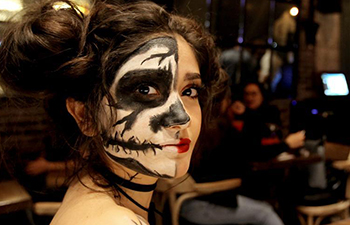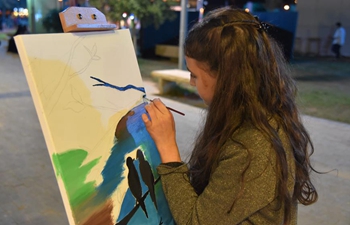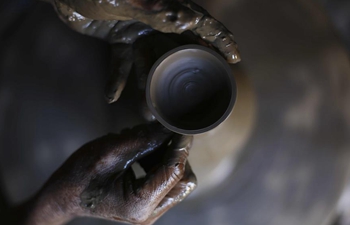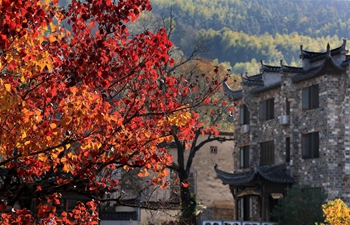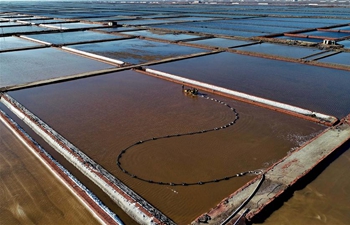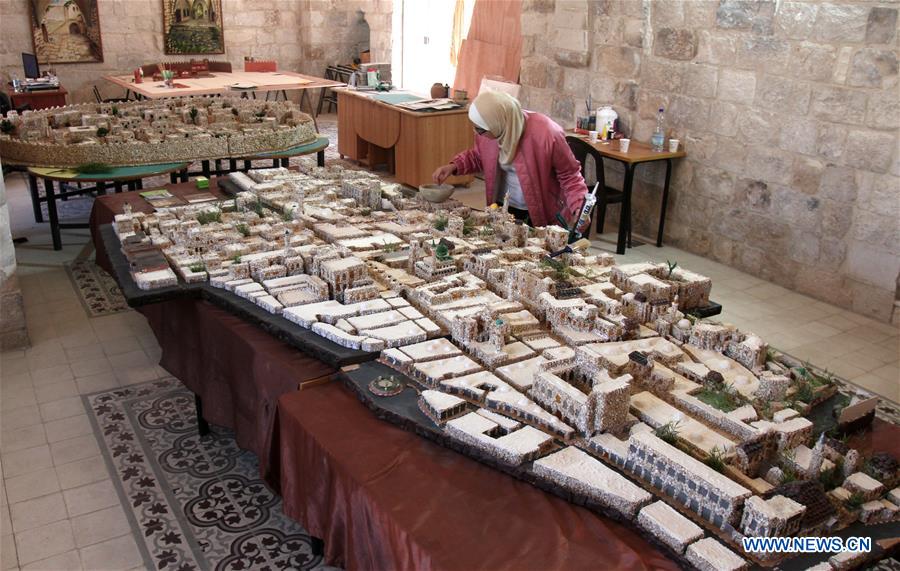 ?
?Palestinian artist Noura Jardaneh displays a miniature replica of the old city of Nablus with the goal of simplifying its routes for tourists and locals alike, in the West Bank city of Nablus, on Oct. 29, 2018. (Xinhua/Nidal Eshtayeh)
by Fatima Aruri
NABLUS, West Bank, Nov. 1 (Xinhua) -- The bustling city of Nablus in the West Bank, with a long history of more than 2,000 years, is still alive with visible Roman remains, Christian marks and Islamic features.
Nicknamed as minor Damascus, or uncrowned queen, the city got its name from the Roman ancient city of Neapolis. The Roman-style city, founded by the Flavian emperors in 72 AD, features distinctive traditional urban architecture despite its bloody history after the Israeli military incursions.
In order to demonstrate the structure of the city in detail, the Palestinian female artist Noura Jardaneh created a miniature replica of the nearly one-square-km old city, using simple materials such as cartons, stones and concrete.
The project took Jardaneh almost three years, driven by her original idea to unravel the maze of the old city's narrow alleys as an informative and interesting tour for children.
"In this project, we aimed at promoting the heritage and tourism by encouraging people to walk into the old city again," Jardaneh said.
"In essence, it employs art at the service of history ... seeing the miniature has provoked curiosity and eagerness toward knowledge and questions," she added.
As a graduate of fine arts and interior design, she put her skills into practice and dug into the history of Nablus to create the min-replica to help visitors better understand the old city.
The old city consists of seven quarters, where most buildings remain intact. The miniature, however, highlights the main characteristics of the Canaanite, Roman and Ottoman eras to satisfy tourists' curiosity with valuable information.
The project also created an offline application of hand-held devices showing various walking tours into the historical old city, to help promote tourism and local businesses.
Aroub Jamileh, deputy director of the Multi-purpose Community Resource Center in the old city, which sponsored Jardaneh's project, said the project demonstrates the city on the architectural, cultural and historical levels.
"It is a revival of the old city, because Nablus has seen attempts to destroy its heritage, but now we have brought it back to life through this project," she said proudly.




